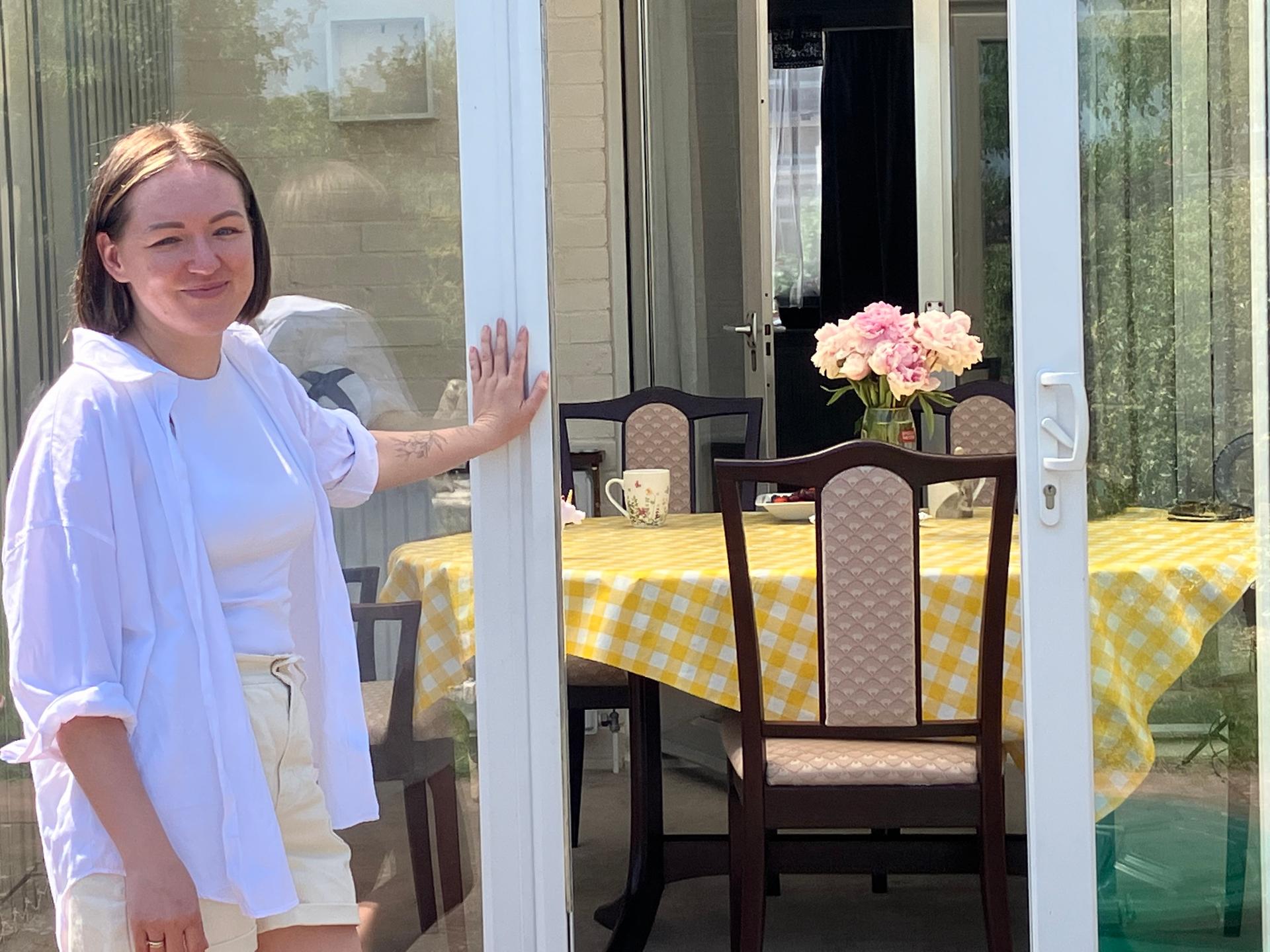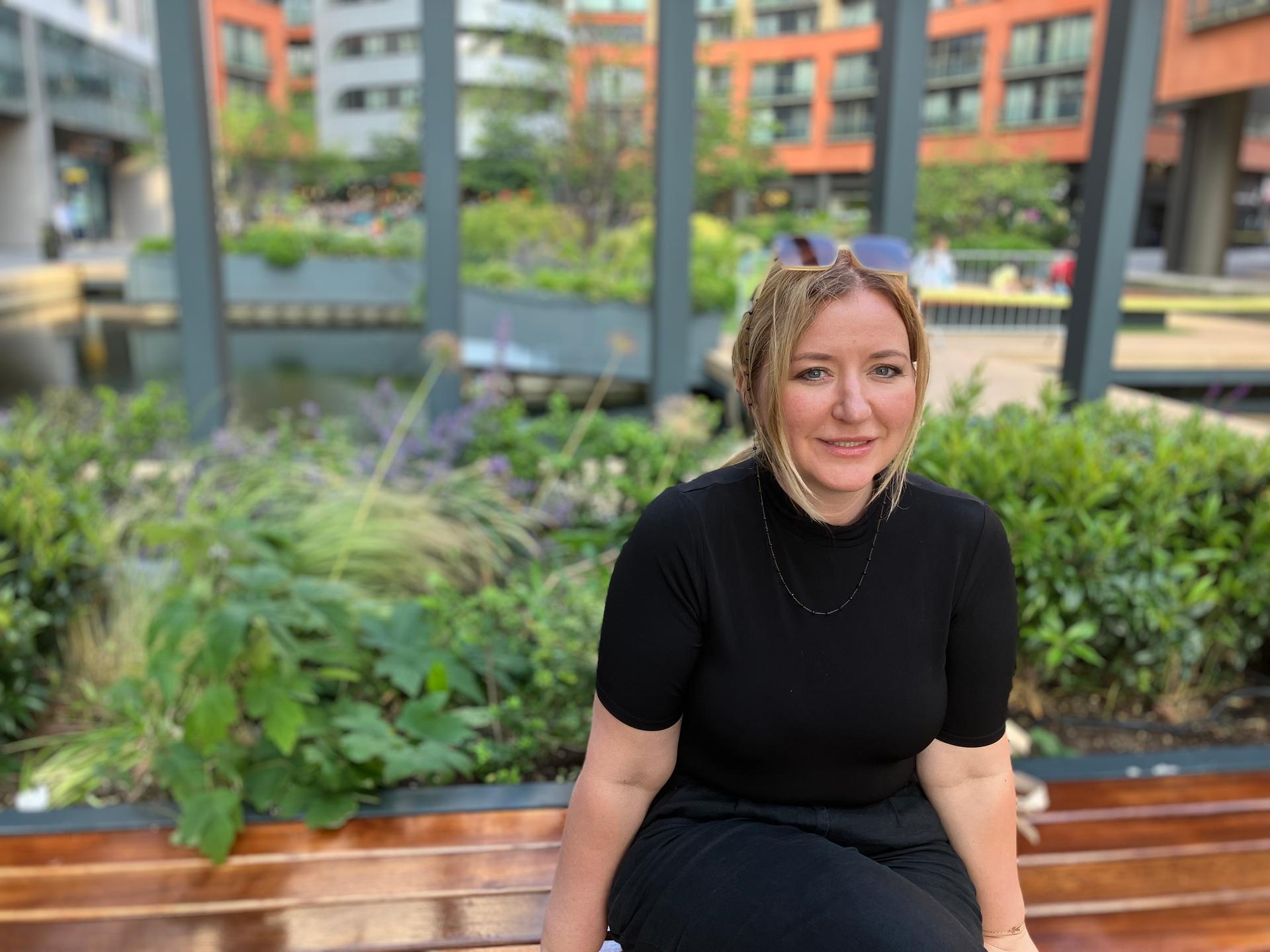Thirty-six-year-old Kateryna Mischenko said that she could not be more excited about the prospect of spending the rest of her summer lounging in the spacious English garden of her new home in Newport Pagnell, a small village just over an hour northwest of London.
“I just come here and go into the grass without any shoes … it’s so good!” she said with a laugh.
Mischenko, her husband and two young children first settled in Newport Pagnell over a year ago with a host family under the British government’s Homes for Ukraine Scheme.
The landmark program, launched in March 2022, has matched more than 120,000 Ukrainians with UK host families who are given a nearly $450 monthly stipend in exchange for providing refugees with room and board for a minimum of six months.
But the budget for this program was cut in half this year, and thousands of Ukrainians are looking for a longer-term solution, and risk becoming homeless.
Mischenko’s family ended up staying with their hosts for nearly a year. But last August, Mischenko decided it was time for her family to find a home of their own.
“[Our hosts] said if you want, stay with us,” Mischenko said. “But, you know, we are a family. We want our own place. All this time, they paid for water, gas … everything … for us. It’s a big difference to pay for one person versus a whole family.”

In the fall, Mischenko and her husband began contacting local rental agencies. They were met with silence.
“No answers, nothing,” she said.
When they finally did start hearing back, the Mischenkos were told they needed a guarantor plus a hefty deposit — sometimes up to six months of rent paid upfront.
They moved into their current place in late March, seven months after they began their housing search.
While Mischenko eventually found a happy ending, she said it wasn’t thanks to help from the government but rather a local housing charity called Nadiya, which agreed to act as her guarantor.
The housing charity has helped hundreds of families find private housing in the UK by acting as their guarantors and providing interest-free loans on deposits.
“What we realized in the very early stages was there was going to be a crisis in the UK after six months, when people’s sponsorship was coming to an end,” said Derek Edwards, Nadiya’s co-founder.
Edwards said that he is proud of Nadiya’s work, but he thinks that local governments should be doing more to step in and assist refugees in finding private housing once their homestays end.
Many don’t, which is why more than 6,000 Ukrainian households are currently eligible for homelessness benefits in England alone.
In some cases, Edwards accuses councils of pushing Ukrainians out of their districts so they don’t have to deal with the issue.
He gives the example of Milton Keynes, a city 50 miles northwest of London.
“[The Milton Keynes Council] doesn’t want [Ukrainian refugees] on their books because, obviously, housing and the care of refugees is expensive to local governments,” Edwards said.
In June, the Milton Keynes Council was given a $825,000 government grant to support housing for Ukrainian refugees.
In a statement, the council said it was working with families to help with rent, deposit and furniture.
But rents in Milton Keynes are high, which is why they sometimes recommend families look for housing elsewhere.
It’s not just Milton Keynes. Rents have skyrocketed across the UK in the last year, with annual rental prices reaching a 5% increase in May, the highest rate in seven years.
That makes finding long-term housing all the more difficult for Maryna Plakdya, a Ukrainian refugee searching for long-term housing in south London.
Plakdya, who is originally from Odesa, Ukraine, came here with her 9-year-old son Simon about a year ago.

Since then, they’ve been living with an elderly couple in London under the Homes for Ukraine scheme.
She said that the family she’s been living with has been great, but they’ve had some recent health issues, and Plakdya agreed to find her own place by August.
Despite having a steady income and sizable budget of around $1,950 a month for a one-bedroom unit, Plakyda said that she hasn’t had any luck in finding a place.
Last month, she signed up with her local council to receive homelessness benefits in the case that she and her son don’t have their housing situation sorted by her August deadline.
Plakdya said that she’s grateful for all the help she’s been given since arriving in the UK, but wishes the government had a clear procedure about what people in her situation should do once their homestays come to an end.
“There are no specific steps or a service in the council who helps or provides answers, like a certain procedure of next steps,” she said.
Edwards, with the charity Nadiya, said it’s unlikely that Ukrainians like Plakdya will end up living on the street — but there’s a larger systemic issue.
“They won’t be homeless, but they will be put into some awful short-term accommodation,” Edwards said.
“It’s not what you should be dealing with when you’ve already escaped a war zone six months ago.”
Edwards also said that short-term, emergency accommodation ends up costing the state more money.
The World is an independent newsroom. We’re not funded by billionaires; instead, we rely on readers and listeners like you. As a listener, you’re a crucial part of our team and our global community. Your support is vital to running our nonprofit newsroom, and we can’t do this work without you. Will you support The World with a gift today? Donations made between now and Dec. 31 will be matched 1:1. Thanks for investing in our work!
